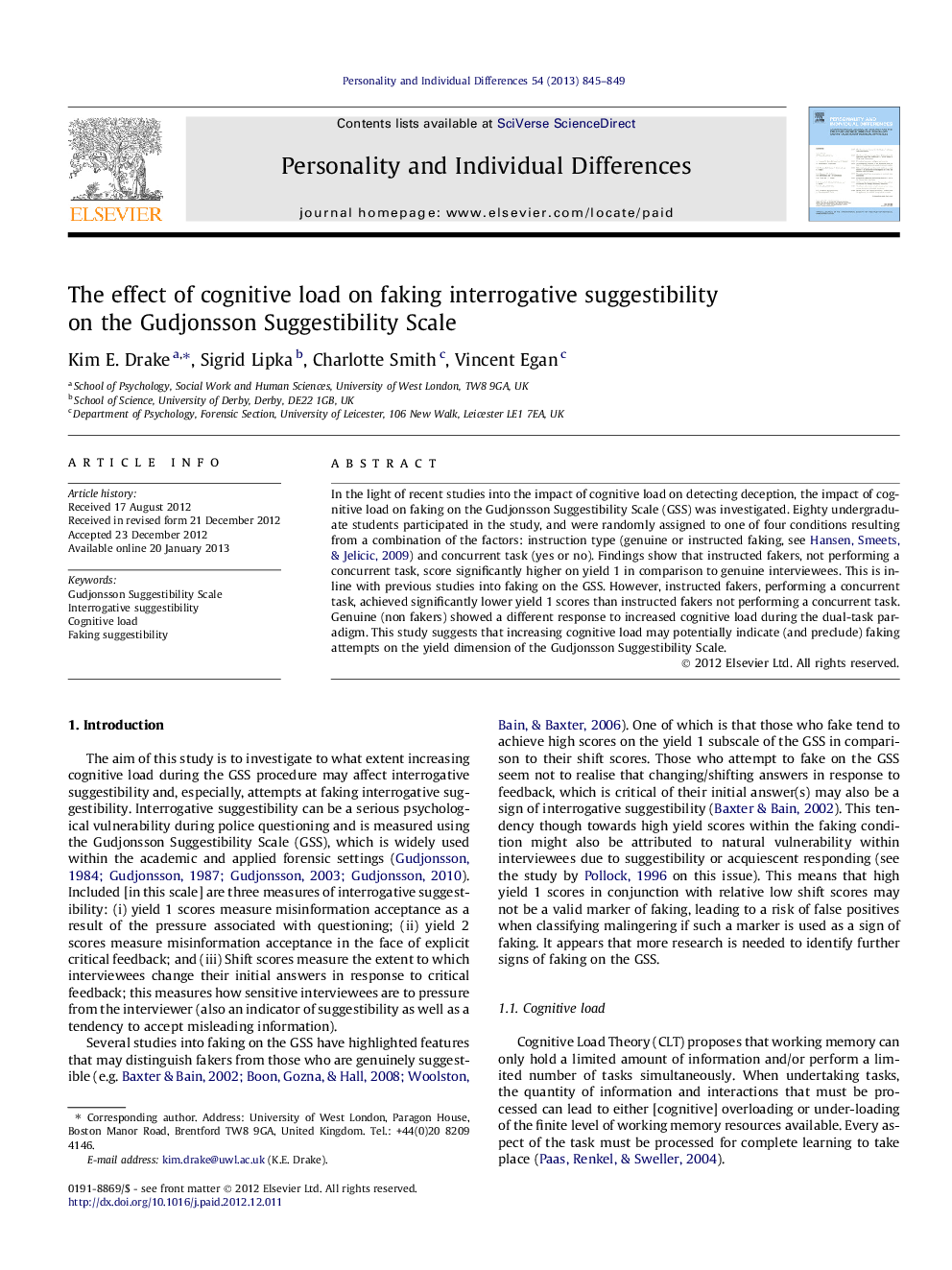| Article ID | Journal | Published Year | Pages | File Type |
|---|---|---|---|---|
| 890944 | Personality and Individual Differences | 2013 | 5 Pages |
In the light of recent studies into the impact of cognitive load on detecting deception, the impact of cognitive load on faking on the Gudjonsson Suggestibility Scale (GSS) was investigated. Eighty undergraduate students participated in the study, and were randomly assigned to one of four conditions resulting from a combination of the factors: instruction type (genuine or instructed faking, see Hansen, Smeets, & Jelicic, 2009) and concurrent task (yes or no). Findings show that instructed fakers, not performing a concurrent task, score significantly higher on yield 1 in comparison to genuine interviewees. This is in-line with previous studies into faking on the GSS. However, instructed fakers, performing a concurrent task, achieved significantly lower yield 1 scores than instructed fakers not performing a concurrent task. Genuine (non fakers) showed a different response to increased cognitive load during the dual-task paradigm. This study suggests that increasing cognitive load may potentially indicate (and preclude) faking attempts on the yield dimension of the Gudjonsson Suggestibility Scale.
► Fakers scored significantly higher on yield 1 (Y1) than standard interviewees. ► Fakers elevated Y1 scores reduced significantly when completing a concurrent task. ► These lower Y1 scores are comparable with scores from standard interviewees. ► Faking on the Y1 subscale seems precluded under increased cognitive load.
